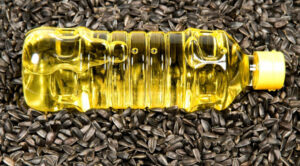
“Kernel, one of the largest Ukrainian agricultural holdings, processed 816 thsd tonnes of sunflower seeds in the third quarter of fiscal year 2024 (FY, July 2023-June 2024), up 10% year-on-year and in line with the previous quarter.
“At the end of February, the Group launched a start-up initiative at a new oilseeds crushing plant located in western Ukraine, which crushed 24 thousand tons during the reporting period. At the time of publication of this report, the plant is reaching full production capacity,” the company said in a report to the Warsaw Stock Exchange on Wednesday.
According to the agroholding, two of Kernel’s oilseed processing plants in Kharkiv region are out of operation due to their proximity to the Russian border and the war zone. The assets continue to be subject to regular attacks and suffer serious damage. One of these plants is currently in an emergency condition due to its location in the epicenter of hostilities. Both assets were fully impaired in 2022.
At the same time, sales of sunflower oil in January-March 2024 increased by 40% compared to the same period in 2023 and reached 382 thousand tons, totaling 1,090 thousand tons in the first nine months of FY2024, up 33% year-on-year.
Sales of bottled sunflower oil accounted for 5% of total sales (19 thsd tonnes) in the third quarter of FY2024.
Although the profitability of sales was relatively stable in the third quarter of FY2024, compared to the previous quarter, EBITDA per tonne of oil sold decreased by 36% to $131, as the profit for the previous quarter was exceeded by a one-time insurance payment caused by material damage and business interruption.
As a result, EBITDA of the Sunflower Oil segment decreased by 34% to $50 million in the third quarter of fiscal year 2024 for the nine months ended March 31, 2024.
The Oilseeds Processing segment generated $184 million in EBITDA for the agricultural holding, down 16% year-on-year.
“As of March 31, 2024, Kernel had a relatively good supply of sunflower seeds: 511 thousand tons of seeds were in stock. Together with further purchases in April-May 2024, this will ensure that the agricultural holding’s plants will be operational until mid-summer, with a further switch to rapeseed processing at some plants, which was already practiced a year earlier.
“Following the progress of the processing season, we have revised our estimates of the sunflower harvest for 2023 and are increasing the harvest of seeds in Ukraine from 14 to 14.5 million tons,” Kernel said.
At the same time, since April 2024, the group’s enterprises have been experiencing problems with electricity supply caused by Russia’s attacks on Ukraine’s generating and distribution infrastructure. This has led to increased downtime and reduced productivity, although the impact is still manageable, the agricultural holding explained.
“Kernel also said that in June-July 2024, it plans to commission a sixth cogeneration thermal power plant with an installed electric capacity of 22.5 MW as a generating capacity at its recently launched oilseed processing plant in western Ukraine.
“This renewable energy capacity is of great importance, especially given the plant’s planned capacity and the upcoming power outages in Ukraine in the fall and winter of 2024,” Kernel emphasized.
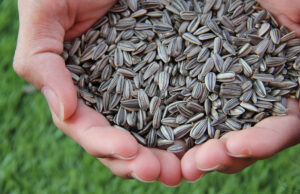
USAID’s Agricultural and Rural Development Program will provide farmers with free sunflower seeds provided by Lidea Ukraine as part of the AGRI-Ukraine initiative, the donor organization’s press service reported on Facebook.
According to the report, the assistance will be offered to farmers who have previously applied through the State Agrarian Register (SAR) for corn seeds, but did not have enough sowing units of this crop.
The program is open to farmers in Dnipropetrovska, Kyivska, Sumska, Kharkivska and Chernihivska oblasts who cultivate between 5 and 500 hectares. Each farmer will be able to receive up to 40 sowing units of sunflower.
There is no need to submit a new application to the State Register, the organizers will contact those who have applied with the offer, USAID AGRO said.
It is expected that Lidea Ukraine will deliver 2858 sowing units of sunflower seeds to farmers from the regions most affected by the war. The delivery of the seeds will be organized by the All-Ukrainian Association of Communities as part of the United Communities project.
“Thanks to this initiative, farmers in the frontline and de-occupied regions will be able to grow and supply at least 24 thousand tons of sunflower to the market. According to preliminary forecasts, the harvest harvested from the donated seeds will bring farmers about UAH 360 million in revenue, which will help restore agricultural production in war-affected communities,” USAID AGRO said.
As reported, recently, as part of the USAID AGRI-Ukraine initiative, Lidea Ukraine has transferred 3362 sowing units of corn seeds to farmers in frontline communities. The application process was completed ahead of schedule due to high demand.

In the third quarter of fiscal year 2024, Kernel processed 816 thousand tons of sunflower seeds, up 10% year-on-year.
According to the company’s announcement on the Warsaw Stock Exchange on Tuesday, six crushing plants of the agricultural holding operated at almost full capacity, while two plants were idle due to the proximity to the Russian border and the war zone.
In addition, at the end of February, Kernel started commissioning the Starokonstantinovka oilseed processing plant in Khmelnytsky region. At the time of writing, the plant has reached over 90% of its processing capacity at the commissioning stage. The plant is expected to be fully operational by May 2024 and reach its maximum processing capacity of 1 million tons of sunflower seeds annually.
At the same time, sales of sunflower oil in January-March 2024 increased by 44% year-on-year to 394 thsd tonnes, totaling 1,103 thsd tonnes in 9M2024.
Sales of bottled sunflower oil in the third quarter of FY2024 amounted to 5% of total sales (19 thousand tons).
Kernel emphasized that the volume of loading of the group’s granaries in the third quarter of fiscal year 2024 was at a seasonally low level – 254 thousand tons, which amounted to 2.7 million tons for 9 months of fiscal year 2024, which corresponds to the same period last year.
The export terminal’s transshipment volume for the reporting period increased to 2,464 thsd tonnes of grain, sunflower oil and meal, which showed a 2.3-fold increase. This was driven by consistent export activity via the Black Sea, increased volumes of sunflower oil produced, transshipment through port terminals acquired earlier in the season, along with the provision of transshipment services to third parties.
Despite the high transshipment volumes of the terminals, the volume of grain exports from Ukraine in January-March amounted to 1.877 thousand tons, which is 2.3 times more than in the same period last year, the company stated.
Before the war, Kernel Agro Holding was the world’s leading producer of sunflower oil (approximately 7% of global production) and its exports (approximately 12%). It is one of the largest producers and sellers of bottled oil in Ukraine. In addition, it is engaged in the cultivation and sale of agricultural products.
Kernel’s net profit for FY2023 amounted to $299 million, while the company ended the previous year with a net loss of $41 million. The agricultural holding’s revenue for FY2023 decreased by 35% to $3.455 billion, but EBITDA increased 2.5 times to $544 million.
In the first half of FY2024, Kernel’s net profit fell 3.6 times compared to the first half of FY2023, to $102 million, and EBITDA halved to $223 million, with revenue down 16% to $1.59 billion.
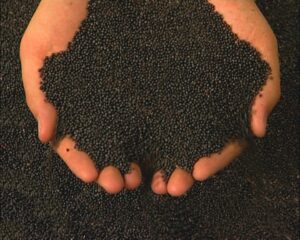
Corteva Agriscience, an international agricultural research company, increased organic sales of sunflower seeds and winter rapeseed by 30% and 80%, respectively, in 2023 compared to 2022, its press service reports.
According to the press release, despite the reduction of corn acreage in Ukraine due to the military actions, Corteva increased its presence in the farms that continued to grow this legume.
The company’s sales growth was driven by an effective direct model of cooperation with farmers, an extensive network of sales agents and representatives, and comprehensive agronomic support for farmers throughout Ukraine. In addition, Corteva has partnered with the Howard G. Buffett Foundation to provide additional rapeseed, corn and sunflower seeds for planting to small Ukrainian farmers in the affected areas, the company said.
Corteva also reported that, despite the overall decline in the crop protection market in Ukraine, the company’s organic sales in 2023 increased by 13% compared to last year. At the same time, the demand for Corteva insecticides doubled compared to 2022.
“Such results reflect the company’s focus on providing farmers with the latest and most advanced products to increase agricultural productivity in Ukraine, as declared in the joint declaration between Corteva Agriculture and the Ministry of Agrarian Policy and Food of Ukraine on deepening and further developing cooperation for food security in Ukraine and the world,” the statement said.
“Almost two years after the start of the full-scale war, we at Corteva have been working side by side with Ukrainian farmers to help them meet the new challenges they face. We have transformed the company’s work in accordance with the current conditions and learned to work in marathon mode. Farmers consider us to be their reliable partners, which is evidenced by the fact that the number of customers remains unchanged despite the overall market contraction. Our team is doing everything possible, demonstrating extraordinary dynamics in 2024,” said Oleksandr Dmytriyev, Corteva Agriscience’s business manager in Ukraine.
As reported, the world’s leading agrochemical company’s operating EBITDA in 2023 increased by 5% year-on-year, while operating profit per share increased by 1% over the same period.
Corteva Agriscience forecasts that in 2024 its net sales will be in the range of $17.4-17.7 billion and operating EBITDA in the range of $3.5-3.7 billion.
Corteva Agriculture is a global agricultural company. It offers comprehensive solutions to maximize yields and profitability. It has more than 150 research facilities and more than 65 active ingredients in its portfolio.
The company’s presence in Ukraine includes the headquarters in Kyiv, a research center in Liubarky (Kyiv region) and a seed production complex in Stasi (Poltava region).
In April 2022, the company decided to leave the Russian market due to the full-scale war against Ukraine unleashed by Russia.
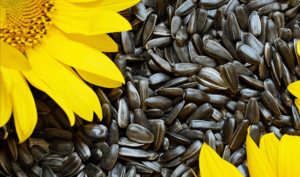
The Cabinet of Ministers has simplified the conditions for exporting sunflower seeds to Bulgaria and established an automatic licensing regime instead of a non-automatic one.
According to the official website of the government, the decision was made at the meeting of the Cabinet of Ministers on Friday.
“Recently, the Republic of Bulgaria has agreed to liberalize the export licensing regime for one of these agricultural commodities, namely sunflower seeds. From now on, obtaining licenses to export sunflower seeds to Bulgaria will not require the approval of the Ministry of Agrarian Policy and, accordingly, separate consultations with this country,” the press service of the Cabinet of Ministers quoted Taras Kachka, Deputy Minister of Economy of Ukraine – Trade Representative, as saying.
According to him, this should simplify the export of relevant Ukrainian products.
Earlier, in order to unblock Ukrainian exports of agricultural products through neighboring EU countries, the government introduced verification and approval (licensing – IF-U) of wheat, corn, rapeseed and sunflower exports to Bulgaria, Romania, Slovakia, Hungary and Poland.
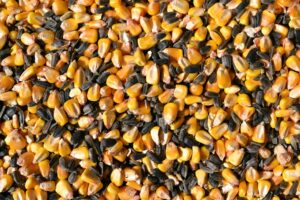
Spain is ready to promote Ukrainian agricultural exports and is interested in importing Ukrainian agricultural products, in particular corn and sunflower, Spanish Minister of Agriculture, Fisheries and Food Luis Planas Puigades said at an online meeting with Ukrainian Minister of Agrarian Policy and Food Mykola Solsky on Monday.
According to the press service of the Ministry of Agrarian Policy, during the online meeting, the parties discussed the export of Ukrainian agricultural products and food security. In particular, the extension of Ukraine’s duty-free and quota-free trade regime with the European Union.
“Spain fully supports Ukraine in the face of Russia’s unprecedented and illegal aggression. This includes both military and humanitarian assistance. The Spanish Minister of Agriculture emphasized that support for Ukraine also means promoting Ukrainian exports, which is a key factor for the economy to continue to function,” the Ministry of Agriculture said, adding that Spain is interested in importing Ukrainian agricultural products, in particular corn and sunflower.
“I reaffirmed Spain’s support for the continuation of trade measures to support Ukraine during a video conference with the Minister of Agrarian Policy and Food of Ukraine. Ukrainian farmers have managed to maintain production despite the difficulties,” Puigadez wrote on the social network X after the talks.
For his part, Solsky thanked his Spanish colleague for his understanding and support.